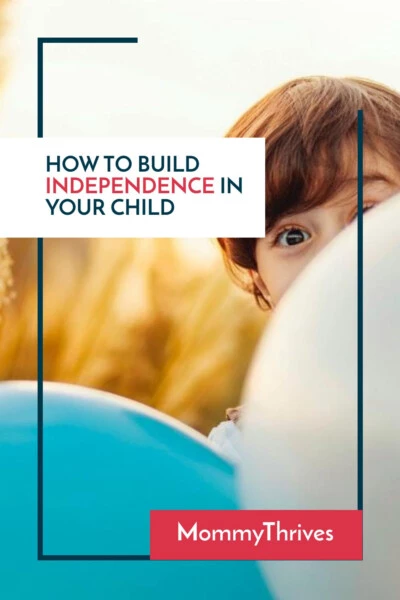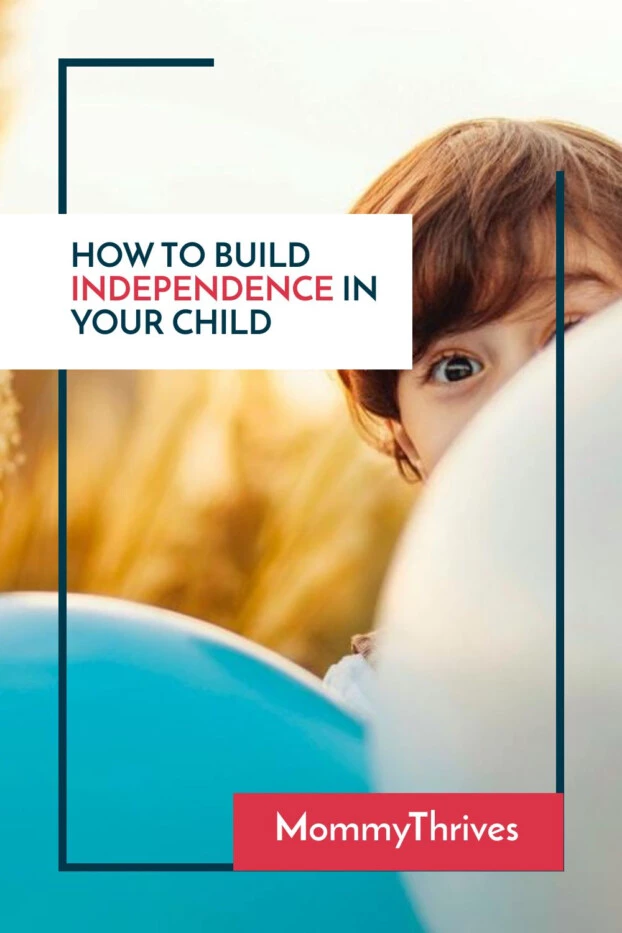Around the time my son got mobile, Rob – my husband – and I started working with L – my son – to get him to be more independent. We felt that building his confidence to be able to do things on his own would be an important life skill for him to have.
With this, however, we’ve also had to teach him the importance of understanding when he needs a helpful eye watching. Or if he needs someone to do it for him.
It’s a careful balance of showing him how to do things on his own until he’s absolutely got it.
Why Is It Important For A Child To Be Independent
For us, the main reason why we needed L to become independent was because we both work at home. When we sit down to complete work he needed to be able to play quietly on his own. If we can get an hour here, an hour there, of uninterrupted work time we can complete our work faster and spend more time with him.
Other reasons why raising an independent child is important is because independence is a life skill they need to have. He will eventually grow up and leave our home. While he is still living with us he will need to learn how to function as an adult.
Independent play also helps him in his different motor skills and his cognitive skills. Problem solving, self regulation, and self confidence are all skills that can be learned through independent play.
Teaching our son independence means he becomes a more natural problem solver. If he wants to do something, like building a tower of blocks, he doesn’t ask us how to do it. He figures it out himself.
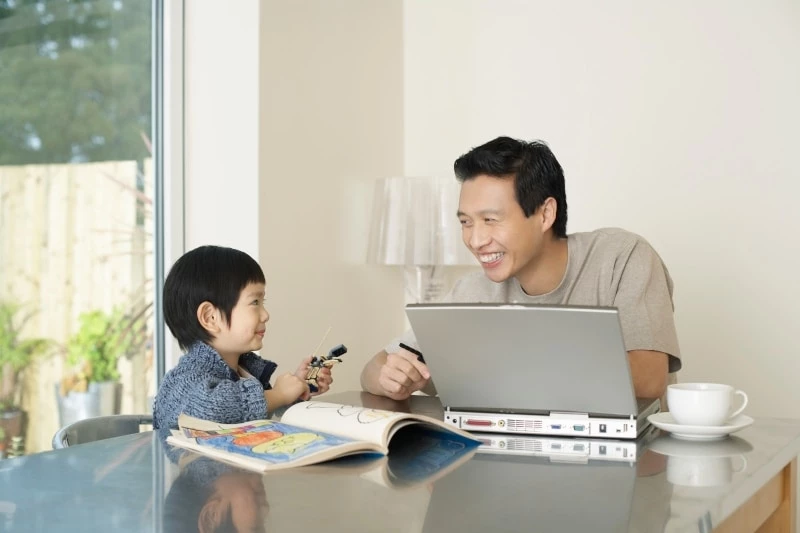
Get The Right Toys For Independent Play
When it comes to teaching your kid anything, play is always the best way. So teaching your child independent play and independence it comes down to owning the correct toys.
Tablet
An Amazon Kids Fire Tablet is one of the best purchases we made for independent play. With this tablet we are able to control the length of time he can play on it and also monitor exactly what he plays on it.
While the controls are great over time my son actually learned to self regulate his own tablet time. He will play for an hour and then put the tablet down to go play with blocks or other toys.
There is one app on the tablet that we absolutely adore and don’t mind if he spends hours playing. That app is ABC Mouse. ABC mouse is a great educational app that has loads of activities, lessons, books, and songs that he can listen to.
Blocks
Blocks are the absolute best toy for independent play for toddlers. First, they don’t require batteries. Second, they are easy to clean. Finally, they help with so many different skills and offers a lot of different play options.
Beyond giving your baby or toddler the ability to learn grasping, they can be used to teach colors and counting as a preschooler too. They improve the motor skills of your child as they learn the importance of balance with their towers.
Duplos and Legos are some of the best and least expensive toys to give your kid from ages 2 and on.
Crayons and Coloring Books
Quiet time with crayons and coloring books builds on your child’s need to be creative without needing to stand over your kid and watch their every move. While craft time is great, scissor use needs to be monitored until they really have them down.
Crayons and coloring helps your child to learn shapes, animals, buildings, weather, colors, numbers, letters, etc. It’s an educational experience and it builds on their motor skills as they color within the lines.
You can get free coloring pages from Crayola here.
Letter Puzzles
Letter puzzles are a favorite in our house. This puzzle set helped him to identify different objects and words.
You can build on this puzzle set and use it as a learning tool for your child as well. From time to time we would sit down and go over the sounds animals or equipment might make and how things worked. It was a fantastic way to introduce more words into his vocabulary.
Chalkboard
The chalkboard is my personal favorite independent play toy. This allows L to practice his writing and drawing in a free space instead of following lines in a coloring book. He draws his favorite cartoon characters, words, and writes down all the numbers he knows on his chalkboard.
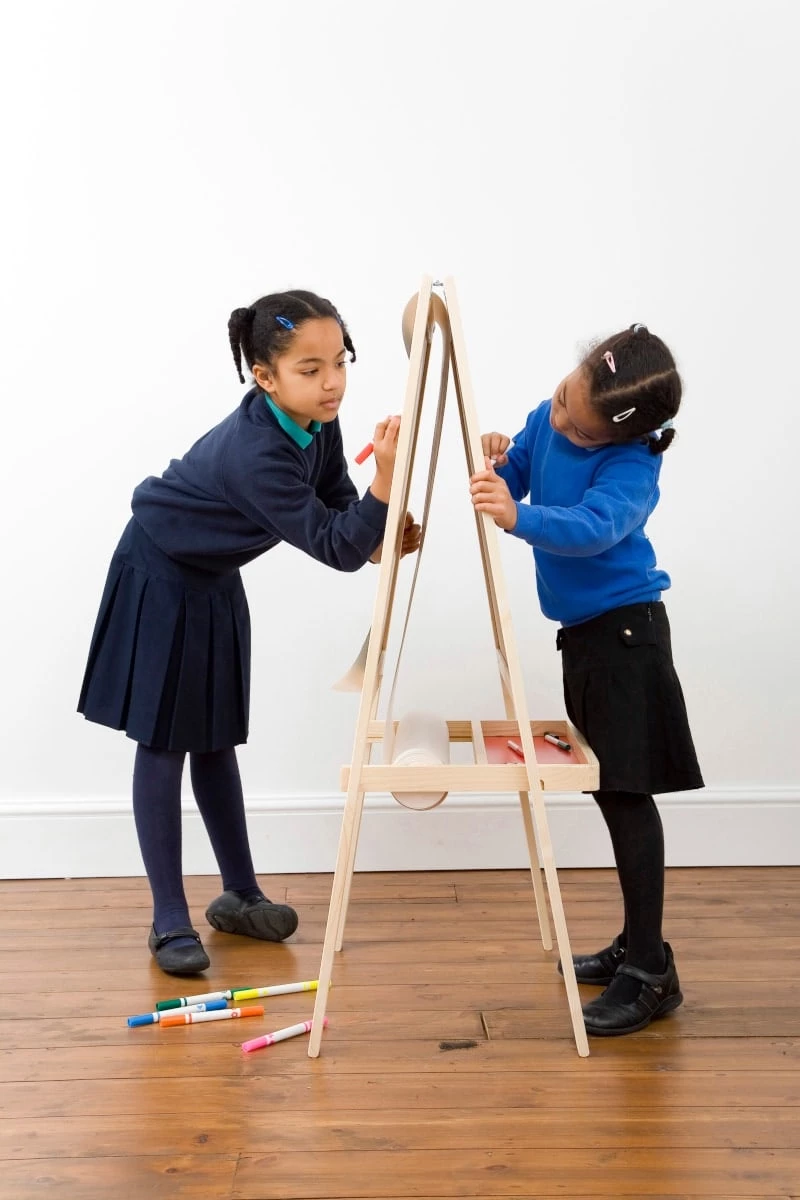
The chalkboard is a great tool when it comes to teaching preschool at home. We personally set up a workstation for his preschool assignments and the chalkboard is right there. It’ll be even more useful in kindergarten through at least second grade.
Related: Melissa and Doug Chalkboard Easel Review
Stuffed Animals
L has loads of stuffed animals and it’s not uncommon to find him setting them up neatly on his bed and playing with them. Stuffed animals are fantastic for quiet play time where he can use his imagination.
His Woody and Buzz allow him to act out his favorite scenes from Toy Story. The beanie babies are great for running a farm. His BB8 acts as a pillow when he’s looking at books in bed. Plus he does have his favorite penguin too.
Kitchen Sets
Kitchen sets are a useful toy for toddlers all the way up to kindergarten. While you are cleaning or cooking in the kitchen your child can mimic what you are doing in the big kitchen in their own smaller kitchen.
With L he played with his kitchen for a few months but really preferred just watching and helping us in the real kitchen. Though not every child is like L in this case. I’ve known a lot of kids who really loved their play kitchens.
Teach Them To Play With Their Toys
Independent play doesn’t always come naturally, we really had to work with L to get him to understand independence. We had to teach him how to play with his toys. After a couple of play sessions he usually got it down though.
It starts off with showing them the toy and letting them get familiar with toy itself. Then it takes showing them the different ways to play with a toy and either having them mimic what you do or encouraging them to try it themselves. Then it takes playing with them and the toy for a couple of sessions.
The real trick comes next.
Set Them Up And Walk Away
When they ask you for help or bring the toy to you to play with you must slowly ease off play with them with the toy. This is when you start encouraging them to play with the toy on their own.
After a few sessions, you start only playing with the toy once. Then let them continue playing with it then you can start encouraging them by saying, “you do it,” or “show me how.”
After some time you can start setting them up with their toy and walking away to let them play on their own happily.
Work Near Them
It’s helpful if they know you are near them as they play. So if you want to focus on cleaning the kitchen you’ll set them up just outside of your kitchen, so they can see you easily.
If you work from home and want them to play while you complete some work, set them up near your desk.
Sometimes it’s the simple comfort of having their mommy or daddy right by them that gives them the confidence to play independently.
Set Scheduled Play Time With You
Once your child has independent play down, it’s important that you give them time to play with you. Independent play is great for long term skills, is not a substitution for the skills they will need to learn while playing with you.
Speech and cognitive skills are better taught in play with your child than independent play. So you need to make sure that your child gets play time with you.
Independent Play Is Important
Independent play is important for your child to learn problem solving skills and improve their motor skills as well. It teaches them they can play quietly on their own and that they don’t always need mommy or daddy to help them.
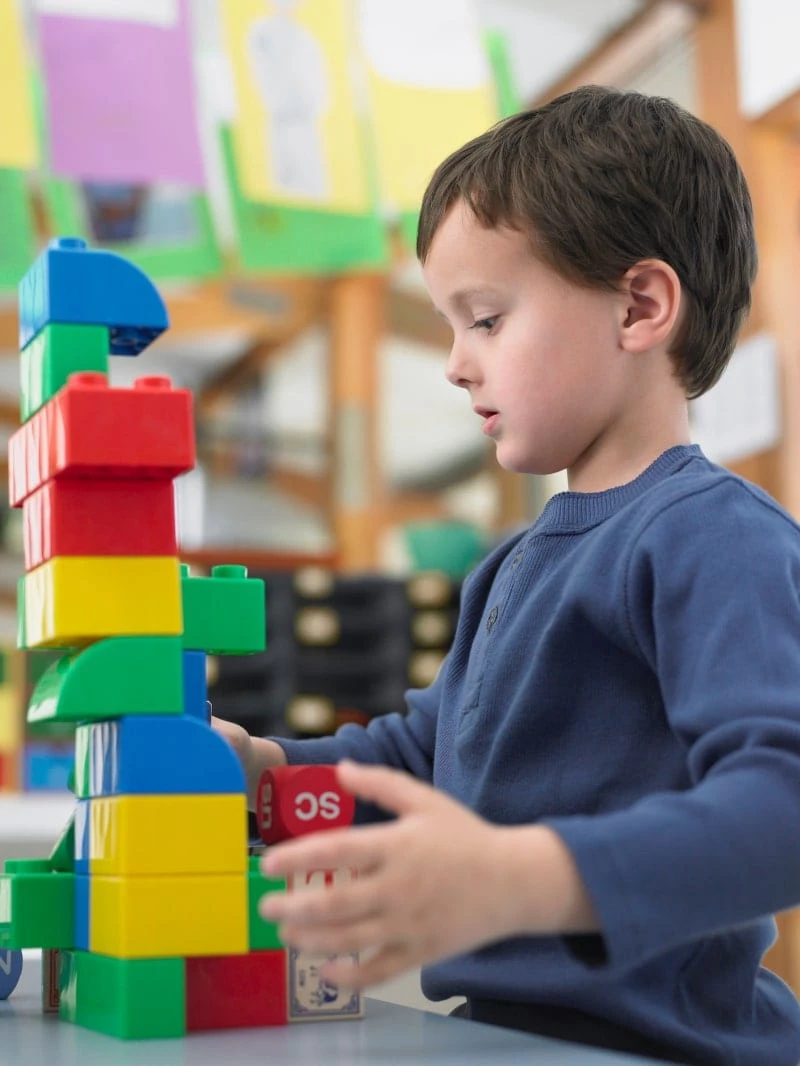
While it’s great for a child to learn independent play, it’s fantastic when you just need a little bit of time to focus on one of your tasks too. A child who knows how to independent play means you have time to read a book, watch a TV show, get work done, clean the house, or any other number of tasks you’ve been putting off.
How To Raise An Independent Child
To raise an independent child means you are raising a child that can be independent. It doesn’t mean that you are raising a child that lives in your home and doesn’t need you. Your child will need your involvement in a lot of ways.
To raise an independent child it takes working with them on skills they need to successfully handle tasks on their own. Also, encourage your child to complete these tasks on their own too.
Are you trying to teach your kid independence? Let me know how it’s going in the comments below. Follow me on Pinterest for more like this and pin this to your favorite parenting boards.
Related Posts:
- How The MagnaDoodle Helps My Son’s Speech Delay
- 17 Best Lego Sets For Kids
- 11 Of The Best Toys To Help Your Baby’s Development
- 20 Best Toys For Toddlers To Learn With
